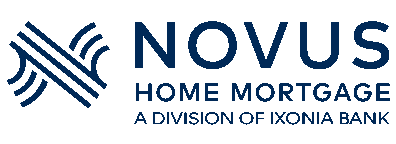
Dan Green
Homebuyer.com
Dan Green (NMLS 227607) is a licensed mortgage professional who has helped millions of people achieve their American Dream of homeownership. Dan has developed dozens of tools, written thousands of mortgage articles, and recorded hundreds of educational videos. Read more about Dan Green.

This website discusses mortgage programs and how to qualify. Your eligibility may vary based on lender guidelines and investor overlays. Check with your lender for specific details.
Trusted Content
This article was checked for accuracy as of November 4, 2024. Learn more about our commitments to accuracy and your mortgage education in our editorial guidelines.
Updated: November 4, 2024
A Master Condo Policy is an insurance policy held by a condominium’s homeowners association (HOA) that covers common areas and the overall structure of the building.
A Master Condo Policy, sometimes known simply as condo association insurance, covers damages and losses to common areas of a condominium complex, including building lobbies, elevators, fitness centers, pools, and building exteriors.
Master condo insurance policies include two types of coverage: property insurance and liability insurance.
Property insurance under a Master Condo Policy covers the condominium complex’s physical structure, including walls, roofs, and shared spaces. Coverage applies after common perils like fire, theft, vandalism, and natural disasters.
The property insurance portion of a Master Condo Policy does not cover the interiors of any individual condo unit or any residents’ personal belongings. Those items are covered separately via an HO-6 policy, which is commonly known as a personal condo insurance policy.
Liability insurance in the Master Condo Policy protects the condominium association if a person is injured in a common area. For example, if a visitor slips and falls in the building lobby, a communal hallway, or the garage, the liability insurance portion of the Master Condo Policy would cover legal and medical expenses resulting from the injury.
Check your eligibility and begin your application now.
Consider a scenario where a first-time home buyer purchases a condo in a well-maintained building.
The condominium’s homeowners association has a Master Condo Policy in place and healthy reserves. Then, during a heavy seasonal storm, strong winds damage the building and multiple balconies, including the balcony of the new owner’s unit.
The building suffers external damage, which is costly to repair, and the affected balconies require new railings and flooring. So, the condo association submits a claim to its insurance company under its Master Condo Policy.
The insurance company sends an adjuster to inspect the building, and after assessing the damage, agrees to pay full repair costs for the building and balconies.
A Master Condo Policy covers the building’s exterior, common areas, and shared amenities. It includes property and liability insurance for damages or injuries in these shared spaces.
No, personal property within your individual condo unit is not covered by the Master Condo Policy. You would need to purchase a separate HO-6 insurance policy for this purpose.
The Master Condo Policy is generally paid for through the homeowners association (HOA) fees paid by the condo owners in the complex.
Typically, a Master Condo Policy does not cover the interior of individual condo units, such as the floors or walls. Owners are usually responsible for insuring the inside of their own units.
If someone is injured in a common area, the liability coverage in the Master Condo Policy can help cover medical expenses or legal costs that may arise from the incident.
Lenders require proof of a Master Condo Policy as part of the mortgage approval process. Mortgages for condos, like those for detached homes, cannot be approved without insurance on the structure.
Wave goodbye to waiting times and say hello to our faster, better mortgage application. It's available anytime you are, 24/7/365. The power to approve your mortgage is just a click away.

A Division of Ixonia Bank
Member FDIC. Equal Housing Lender.
Homebuyer.com
Operated by Novus Home Mortgage,
A Division of Ixonia Bank
1311 Vine St
First Floor
Cincinnati, OH 45202
513-824-8171
Notices
Mortgages
Notifications